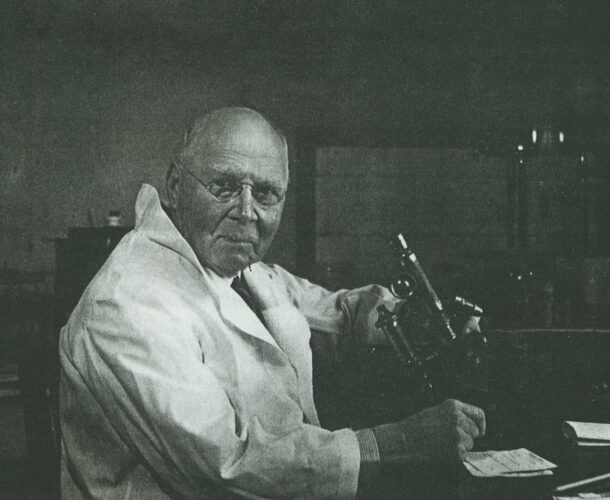Dr Charles Kellaway and Dr Wilhelm Feldberg describe the action of slow-reacting substance of anaphylaxis (SRS-A). Related to histamine, it is later found to be a pro-inflammatory molecule that is released by damaged cells to alert the immune system.
Snakebite spinoff
Kellaway and Felberg’s research into snakebite antivenoms spawned many investigations into the mechanisms of allergic reactions. Throughout the mid-1930s, Kellaway and colleagues investigated how cells responded to cobra venom, dissecting the molecular pathways involved in trigger inflammation and muscle contraction.
Their search revealed that cells released histamine after exposure to cobra venom, but intriguingly, another substance was present. This new substance still triggered muscle contraction, but instead of immediately relaxing, the contraction faded over several minutes. Slow-relaxing substance of anaphylaxis had made its appearance and was found to be liberated in many types of cell damage.
Isolating SRS-A
Kellaway and Feldberg’s studies confirmed SRS-A is released from cells and not a component of venoms or allergens. This finding is crucial to understanding how tissues respond to anaphylactic allergic reactions and are implicated in some types of asthma. It is more than 30 years until SRS-A is identified as being a leukotriene, a type of signalling molecule that triggers an inflammatory response by the immune system.





